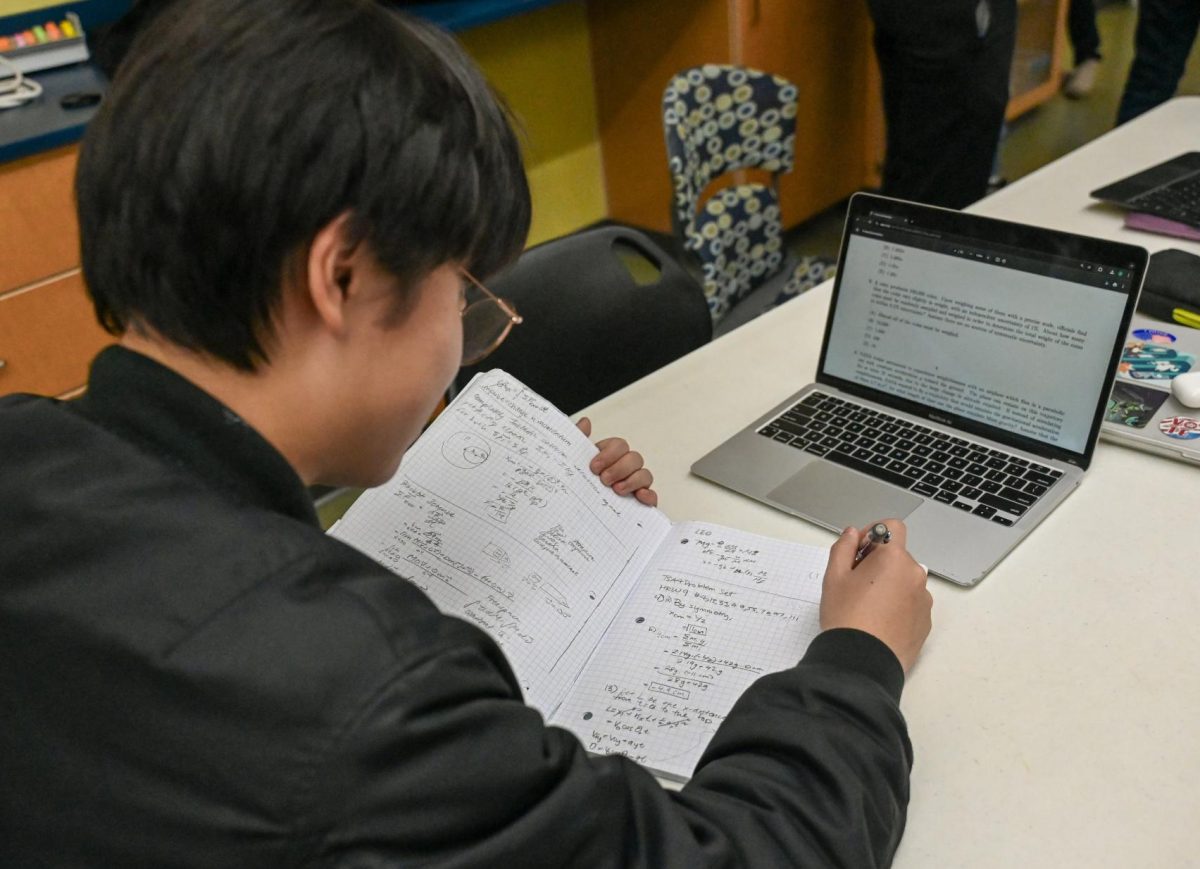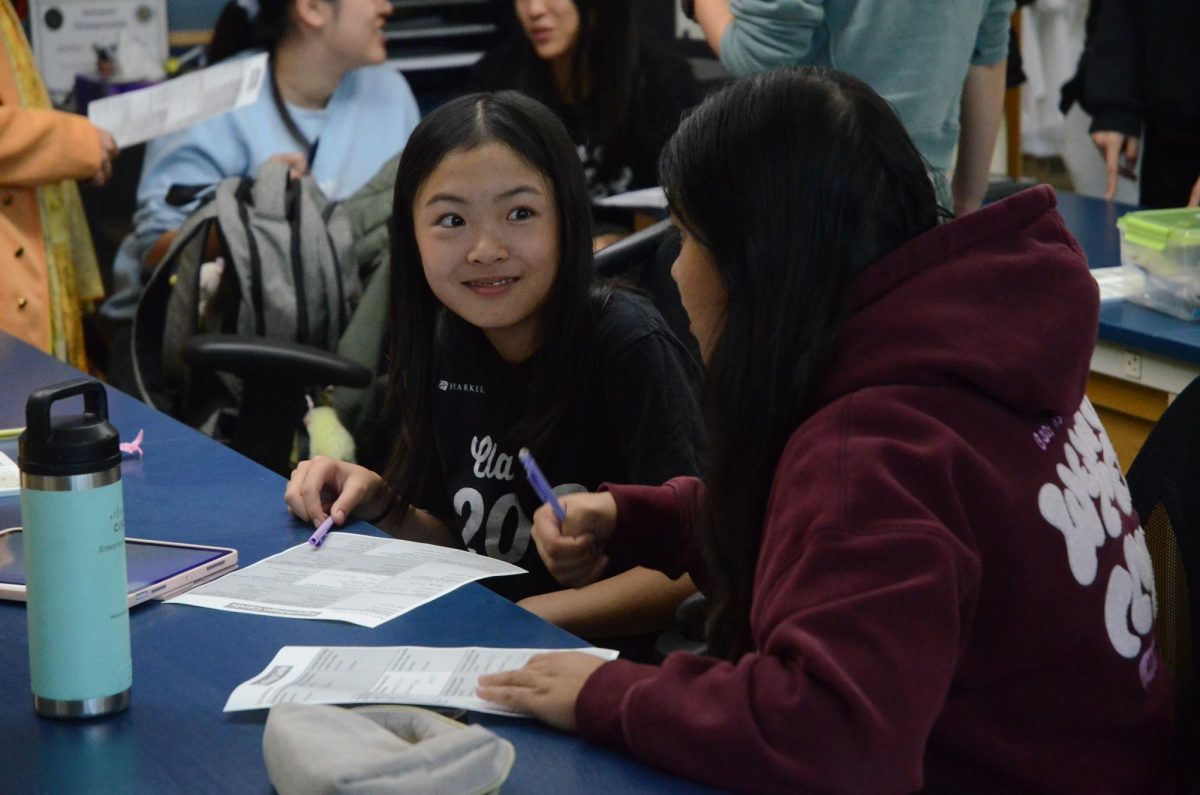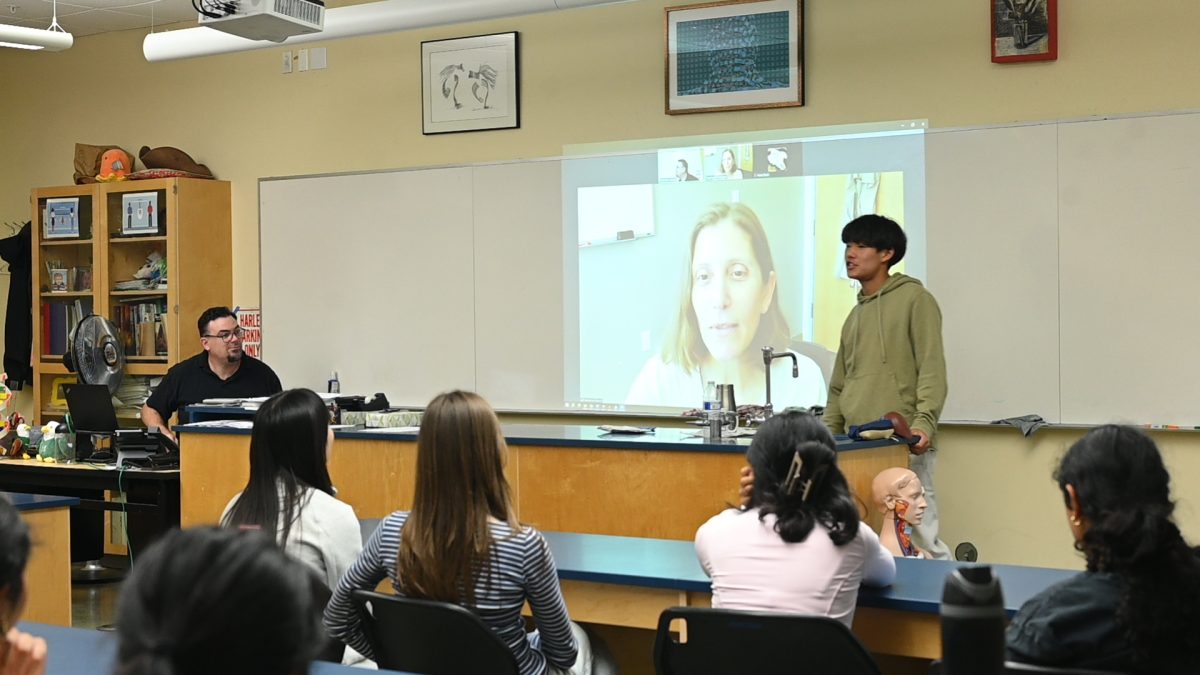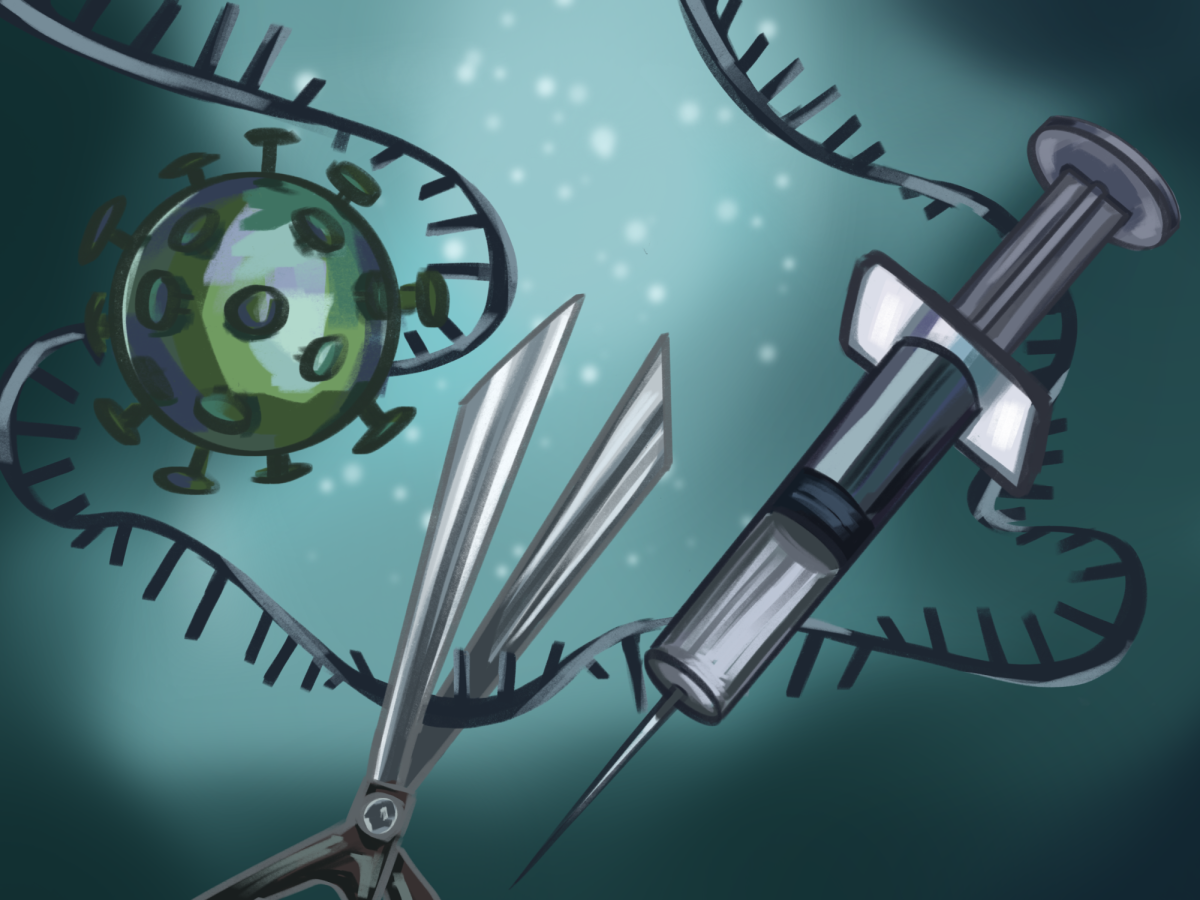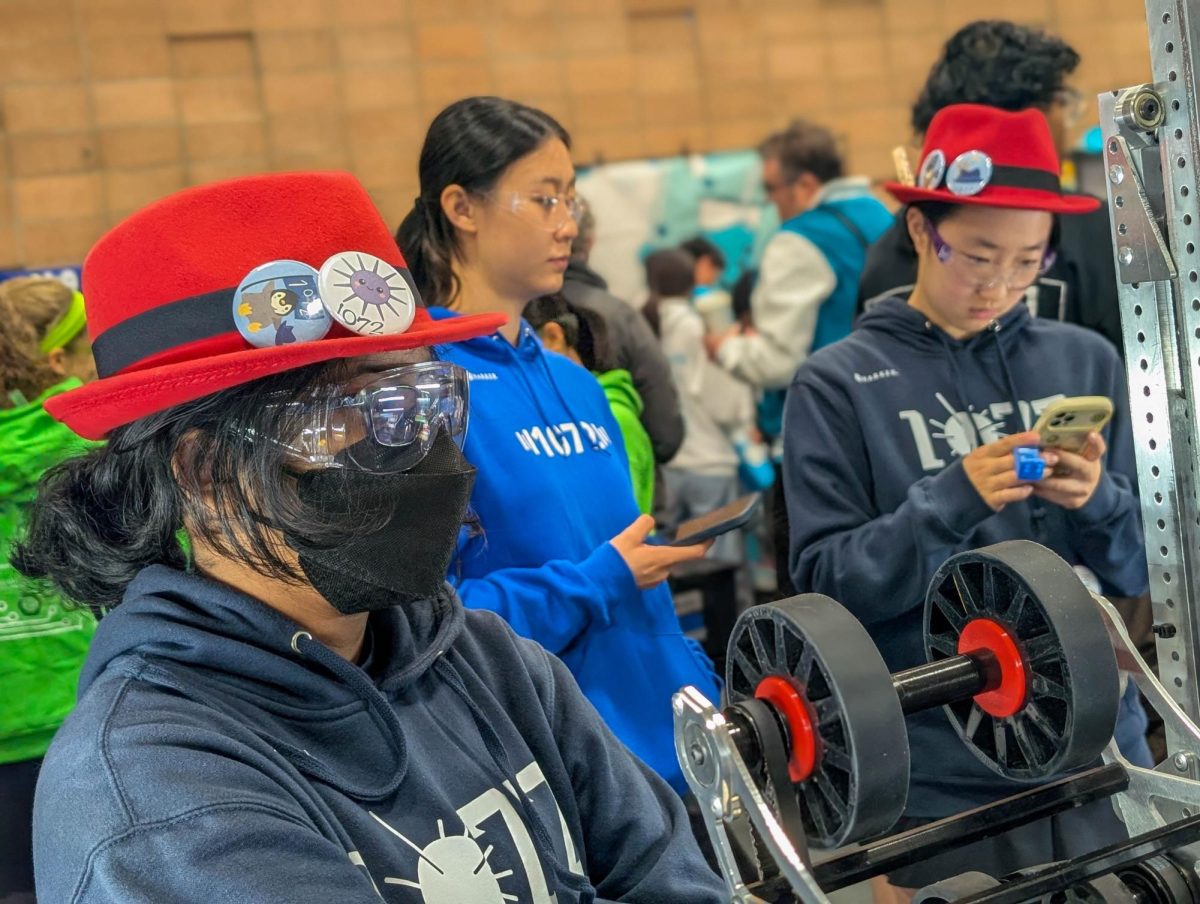162 middle and high school students worldwide participated in the 2024 Harker Physics Invitational (HPhI) online hosted by the Physical Sciences Club on Saturday.
Participants from 20 states and seven countries, including Canada, Nepal and Malaysia, attempted to solve 25 physics problems in 90 minutes, competing for cash prizes totaling to $800. The top 10 participants also competed in a rapid fire tiebreaker round to rank those with tied scores.
“The problems were interesting and different from what I’ve usually seen in competitive physics, which was nice,” junior attendee Eric Dong said. “I’ll definitely come back since I’m annoyed about my performance this year, so I’d like to do my best next year without mistakes.”
Owen Zhou from BASIS Scottsdale in Arizona received first place and a $250 Amazon gift card, Mahith Gottipati from John Foster Dulles High School in Texas came in second and Kai Lum from BASIS Independent Fremont won third.
“One of our main challenges was accommodating people from different places,” Physical Sciences Club co-President Jacqueline Huang (12) said. “For example, some of our competitors didn’t have access to computers. Still, in the past few years, we’ve seen a rapid increase of participants, and the overall skill level of participants has also increased, so we increased the value of the awards to reflect the increasing amount of skill to rank in the top 10.”
The HPhI also included a speaker panel with experienced physics competitors. Past U.S. Physics Team members Kartik Ramachandrula and William Zhao and 2023 International Physics Olympiad gold medalists Zian Shi and Feodor Yevtushenko gave advice to attendees about physics competitions and discussed the team’s training camp. The speakers answered questions about real-world applications of physics concepts, advantages of physics competitions in potential career paths and their favorite problems and theorems.
“Having passions like physics and math and setting goals for yourself helps you become more disciplined and focused,” Zhao said. “You don’t need to be superhuman to reach your goals. A big difference between in the classroom and for physics contests is how motivated you are — if you’re actually interested in physics and want to grow that interest, you’ll naturally want to learn more.”
The physics division of the Physical Sciences Club has organized the HPhI since 2022, The club consists of 10 officers who write questions and solutions for the competition and organize logistics and outreach for the event. This year, the team focused heavily on the prevention of cheating during the competition, a difficult task in the virtual setting.
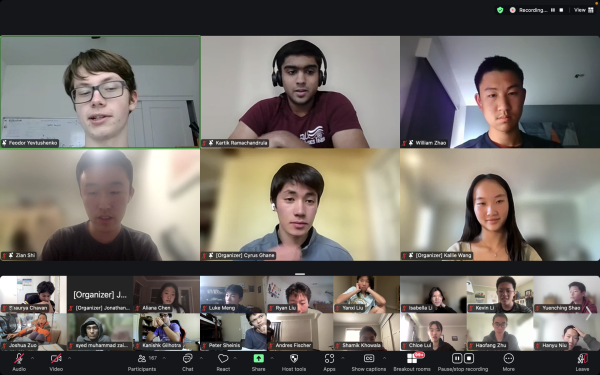
“The online format of HPhI, designed to reach people from around the world, unfortunately also makes cheating much easier,” Jacqueline said. “We enforced new measures, like recording exam rooms, asking to see the scratch paper of any questionable competitors and splitting the exam area into multiple breakout rooms. Most importantly, we required all participants to show their faces, hands and entire workspace.”
Compared to previous HPhIs, the team condensed the schedule from four hours to three while retaining the same events, including tiebreakers and the speaker panel. In the future, Jacqueline hopes to see HPhI attract more participants, both in the U.S. and around the world, to give them more chances to learn and practice physics.
“I’m sure HPhI will continue growing in future years,” Jacqueline said. “I see many opportunities to add new events, and I hope that we’ll continue outreach efforts — trying new methods of outreach — so more people and communities can have this opportunity.”


















![“[Building nerf blasters] became this outlet of creativity for me that hasn't been matched by anything else. The process [of] making a build complete to your desire is such a painstakingly difficult process, but I've had to learn from [the skills needed from] soldering to proper painting. There's so many different options for everything, if you think about it, it exists. The best part is [that] if it doesn't exist, you can build it yourself," Ishaan Parate said.](https://harkeraquila.com/wp-content/uploads/2022/08/DSC_8149-900x604.jpg)




![“When I came into high school, I was ready to be a follower. But DECA was a game changer for me. It helped me overcome my fear of public speaking, and it's played such a major role in who I've become today. To be able to successfully lead a chapter of 150 students, an officer team and be one of the upperclassmen I once really admired is something I'm [really] proud of,” Anvitha Tummala ('21) said.](https://harkeraquila.com/wp-content/uploads/2021/07/Screen-Shot-2021-07-25-at-9.50.05-AM-900x594.png)







![“I think getting up in the morning and having a sense of purpose [is exciting]. I think without a certain amount of drive, life is kind of obsolete and mundane, and I think having that every single day is what makes each day unique and kind of makes life exciting,” Neymika Jain (12) said.](https://harkeraquila.com/wp-content/uploads/2017/06/Screen-Shot-2017-06-03-at-4.54.16-PM.png)








![“My slogan is ‘slow feet, don’t eat, and I’m hungry.’ You need to run fast to get where you are–you aren't going to get those championships if you aren't fast,” Angel Cervantes (12) said. “I want to do well in school on my tests and in track and win championships for my team. I live by that, [and] I can do that anywhere: in the classroom or on the field.”](https://harkeraquila.com/wp-content/uploads/2018/06/DSC5146-900x601.jpg)
![“[Volleyball has] taught me how to fall correctly, and another thing it taught is that you don’t have to be the best at something to be good at it. If you just hit the ball in a smart way, then it still scores points and you’re good at it. You could be a background player and still make a much bigger impact on the team than you would think,” Anya Gert (’20) said.](https://harkeraquila.com/wp-content/uploads/2020/06/AnnaGert_JinTuan_HoHPhotoEdited-600x900.jpeg)

![“I'm not nearly there yet, but [my confidence has] definitely been getting better since I was pretty shy and timid coming into Harker my freshman year. I know that there's a lot of people that are really confident in what they do, and I really admire them. Everyone's so driven and that has really pushed me to kind of try to find my own place in high school and be more confident,” Alyssa Huang (’20) said.](https://harkeraquila.com/wp-content/uploads/2020/06/AlyssaHuang_EmilyChen_HoHPhoto-900x749.jpeg)



